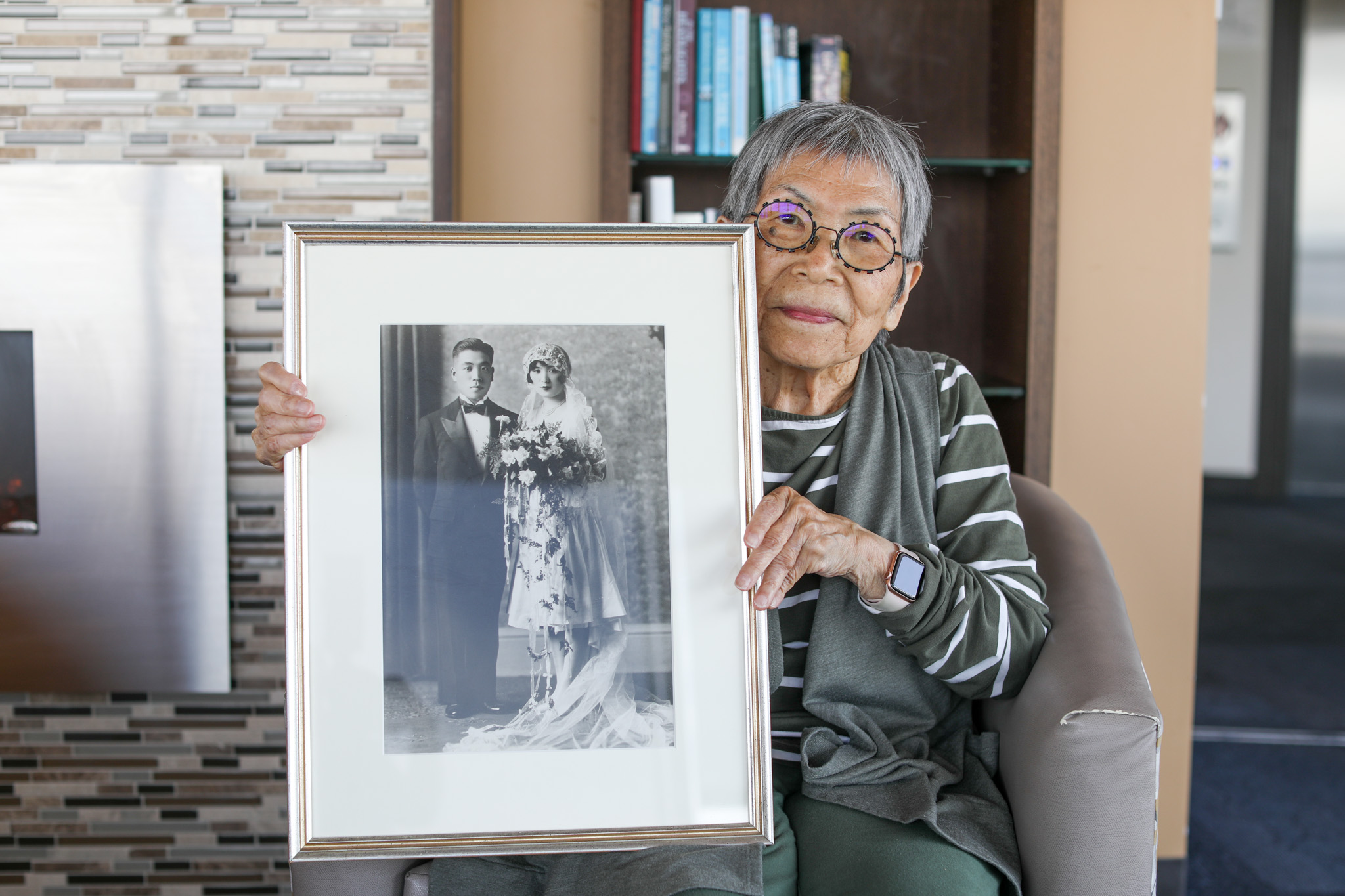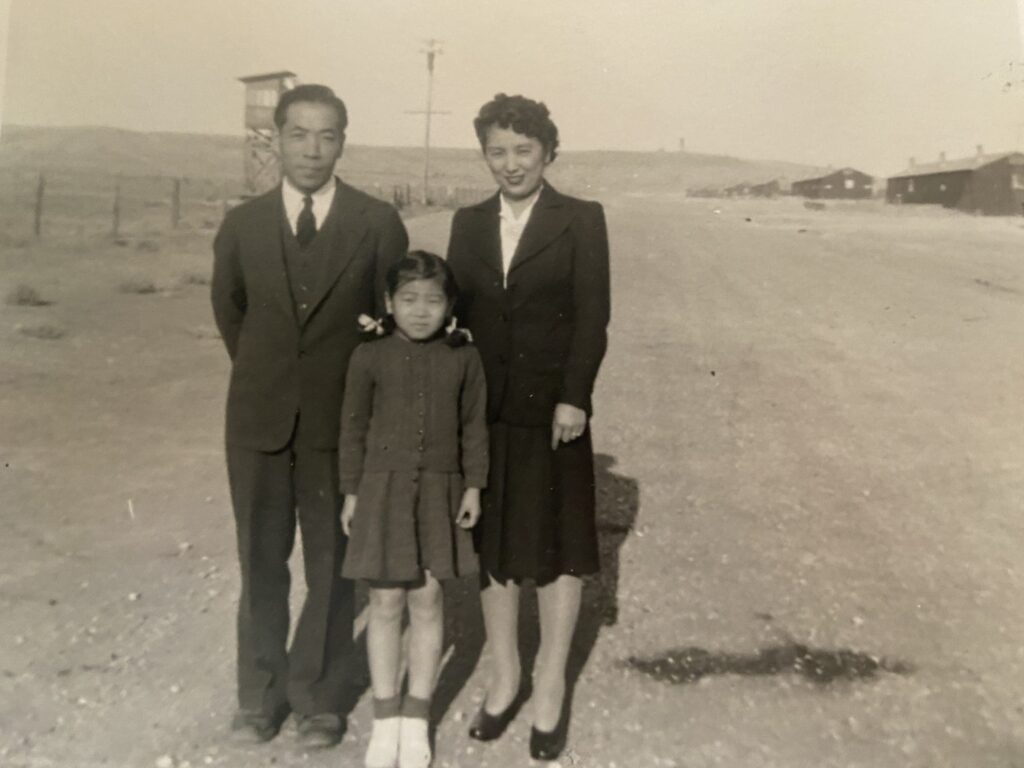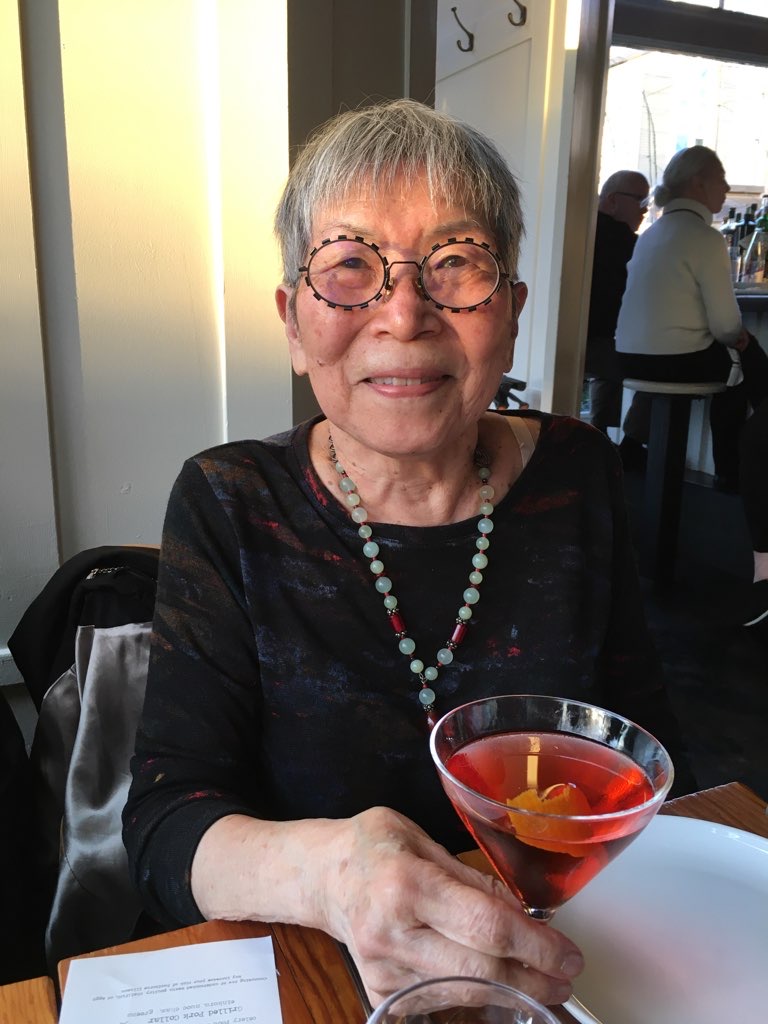
May 30, 2023
In a heartfelt interview with Marie, Bayview Resident since 2022, we delve into her personal story as a Japanese American. Marie shares her family’s history, experiences growing up, and her journey of self-discovery. As we explore her story, we gain a deeper understanding of the importance of celebrating Asian American and Pacific Islander Heritage Month, and the significance of passing down cultural history to younger generations.
It’s a story that starts with Marie’s family. Marie’s mother, was a Kibei nisei (Japanese American, born in Oakland but received her education in Japan). Her father, an Issei (immigrant from Japan), came over first when he was 16. He traveled between Japan and the United States several times, “which is what they did often to make money for their families in Japan.”
Marie explains, “My father and mother’s marriage was arranged by both families. My mother was 19 at the time of the marriage and he was 29. There was a lot of emotion behind my mother’s being in that situation. The stunning photograph does not show her distress.” Although Marie’s mother was born in America, she lost her citizenship status when she married her immigrant father. They both became naturalized citizens in the 1950’s. Marie is pictured holding the photo of her parents on their wedding day.
During WWII, Marie (age 5) and her family were incarcerated at the Heart Mountain Relocation Camp in Wyoming. It was during this tumultuous period that her father, on the advice of a friend, relocated the family to Detroit when he learned there were jobs available, and that potential employment was a condition for leaving Heart Mountain. “I grew up in Detroit, elementary school, high school, and studied Liberal Arts/Biology at the University of Michigan.” Marie eventually made her way to Seattle with her husband after living in England for a few years.

Marie’s heritage has played a pivotal role in shaping the person she is today. While her father suppressed his connection to Japan due to the war and held very conservative views on the role of women in society, Marie’s mother was encouraged by her brother to support learning more about the world through education and the arts. Just this year Marie went with family and friends on a trip to Japan and thought of her father who turned his back on his country of origin to prove he was a good American. There were many tears shed by Marie.
Through her recent coursework and readings, and the interest in the preservation of family photos of the incarceration experience, Marie turned to DENSHO. A nonprofit based in Seattle whose mission is to preserve and share history of the WWII incarceration of Japanese Americans to promote equity and justice today.
DENSHO will receive any archive materials that you can donate to them to make sure that everybody has access to Japanese American History, “You can view the Konishi gallery containing my family photos of Heart Mountain as well as video interviews of community volunteers and access to curriculum for educators.” Every year, DENSHO celebrates ‘the Day of Remembrance’ on February 19 (Executive Order 9066 was signed by President Roosevelt incarcerating 120,000 Japanese on the West Coast who were majority American citizens. Never Again). “In my own quiet way, I’ve tried to communicate these significant pieces of information when appropriate.”

For Marie, celebrating Asian American and Pacific Islander Heritage Month holds great importance. She stresses the need to recognize the diverse backgrounds within the AAPI community and move beyond the broad “Asian” categorization. By acknowledging individual identities, historical roots, and family narratives, people of all ages and backgrounds can gain a deeper understanding of each other. Marie emphasizes the significance of communities like Bayview acknowledging AAPI Heritage Month. She says by openly discussing their experiences, individuals can gain a more comprehensive understanding of history. It is through these ongoing conversations that communities can grow, learn, and create a more inclusive society.